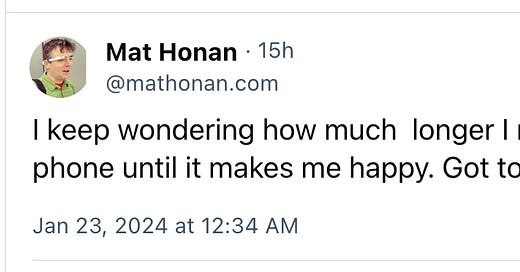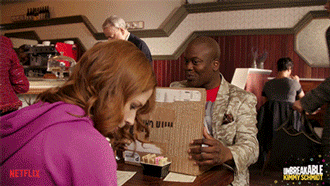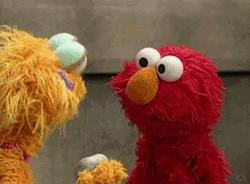Young adult POVs on best tech practices for kids
What's it like to be a kid with a phone? Asking folks who recently were one
I was talking to a mom recently about the age I’d prefer to wait until my child had his own smartphone/social media access. Her perspective was that he would be socially behind if we let him wait as long as we aimed. (My son, a young 6th grader, agrees with her.) Then a day or two later, I saw this New York Times article on how Tucker Carlson is trying to sell our 6th graders chewing tobacco packets via TikTok, so I was feeling like you’re screwed no matter what you do, and nobody really knows how to discern what’s best vs. what’s realistic.
Then I realized that while the era of children getting smart devices/talking to each other/having social media accounts is new, it’s not that new. There are some adults walking around who know what it’s like to be a 6th grader on Snapchat. They are young adults, but they have lived experiences that might shed some light on the intersection of FOMO, safety, peer pressure, self-esteem, and social connection that gets lost in parental and academic discussions.
I wrote up a few brief questions for people aged about 18-25 and posed them in
’s FB group on raising boys, asked them in a survey in last week’s newsletter, and then Casey Johnston kindly shared it in She’s a Beast. I got about 45 answers in total.I wanted to keep the survey very short and did not ask for demographic information beyond age, so I can’t attest to the diversity of location, race/ethnicity, or socioeconomic status. With those limitations in mind, I thought the answers I did receive were fascinating, with a lot of common sense, some regret, and plenty of insight with regard to what matters now vs. what we want to matter now. I perceive some level of consensus in these responses, yet they also reveal the nuances of everyone’s individual circumstances and kids’ range of personalities, needs and abilities.
If you answered this survey and are reading this now (or you’re a witch to passed on to your kid): THANK YOU for sharing. I was reading this over being like “Wow, there is a lot of great advice in here from these thoughtful young people.” I wanted to include them all, but this is a newsletter, so I condensed the responses way down to what you see below. Some were edited for length but I otherwise left the quotes as they were entered.
What age, based on your experiences, do you think is appropriate for a child to receive a smartphone with internet access and/or access to social media?
I did a bit of rounding and guesstimating here (like what age counts for “middle school” vs. “high school” but here is the rough breakdown of the answers to the first question:
42% said age 14-15 years is appropriate
27% replied age 13 (or “eighth or ninth grade”)
20% said age 12 (or “middle school”)
11% said age 17 or higher
More from the young adults on why they chose these ages:
“11-12 is… when kids start doing more things with their friends and are spending more time away from their parents and it’s important that they have a tool to communicate if there is a problem. I also think that social media literacy is incredibly important and we get so much of our news from social media so it’s important for kids to learn how to think critically about what they see online and to learn how to distinguish between actual facts and fake information.”
*
“i don’t think middle schoolers should really have one. dependence on these tools isn’t actually engendering any form of greater curiosity or imagination nowadays, it just makes young kids heavily socialize and personalize themselves around commodities or movements that don’t make them challenge or change their ways of thinking. there is no real ‘interaction’ on social media, there are no stakes, no reason to try or do better or anything because other users in these sites are just relegated to being one of several million other observers to very very curated persons of interest.”
*
“I got my first cell phone (my dad’s old flip phone!) when I was 12. It did not have any internet abilities, thank god! I then got my first iphone in the 9th grade and remember vividly getting instagram immediately. Luckily I didn’t have to deal too much with the crazy side of social media at that age. My sister, who is 10 years younger than me, has essentially had social media since she was 6 or 7. She was nearing 10 and doing weirdly sexual dances on a platform that didn’t have much privacy concerns at the time. I remember being horrified by this! I worry about my sister all the time (she’s 16 now).”
*
“I am thankful for my parents who limited my social media access even after having a phone until I was more ready for my own accounts etc. I wanted a phone so I could stay in contact with my friends primarily, and social media came later. This allowed me to have more self control over the use of Instagram and other platforms.”
*
“I think it depends on the kid, that some are more mature and ready at a younger age than others. But I would say no earlier than middle school. I don’t really think elementary school age kids need access to everything that’s out there.”
If you could go back and give yourself advice or guidelines when you first got a smartphone or on social media, what would you tell yourself?
“Everything you do, say or post on social media is there forever. Employers can see it, your friends can see it and your family can see it.”
*
“Set time limits and when they’re up go read a book”
*
“First, don’t post stupid things to be funny. At a young age all you want to do is make your friends laugh but as you get older you’re going to look back and wince at some of the things you said. I personally feel that social media has been incredibly detrimental to interpersonal communication and it’s damaged the way we interact with people and hurt certain aspects of life such as the way we approach dating.”
*
“There was a lot of personal and inappropriate things I shared that I just wasn’t old enough to have discernment for. I put myself in bad situations sometimes. I really wish I would have had more guidance, support, and boundaries. I knew more about tech than my family so it was easier to hide things. I learned a lot, some good, some not. I just would have liked knowing how to navigate those pitfalls so I didn’t have to learn the hard way.”
*
“I would tell myself to stay away from porn and avoid watching as much gore videos.”
*
“Some of your coolest friends in your 20s are the ones who somehow evaded the entire hellscape of social media and don’t even know they currently live ‘off the grid.’ Pay attention to the emotions you are experiencing as you scroll - is this bringing joy to your life? Or just feelings of inadequacy and jealousy? Are your friends using this to be inclusive and uplifting, or are they purposefully using it to leave others out? Decide for yourself how you want to use socials, and pay attention to how it makes you feel. Of course, this is hard for me as a 26 year old, but I wish I had more of an understanding of this in high school.”
*
“Don’t worry about what phone you have compared to others, at least you have one at all.”
*
“Everyone is lying about their lives, stick to books. Not everything is as serious or important or scary as people make out online. You need to spend your time developing your hobbies, not on Instagram.”
*
“You will continue to live past the age of 15, whether you like it or not, so you will have to deal with the consequences of your actions.
My Tips:
- Keep handing your phone in every evening from 9pm - 8am, sleep is crucial and the improvements are so noticeable
- Not letting someone into your digital space is easier than trying to remove them later. Keep accounts private and delete follow requests liberally
- You’re gonna keep learning and your perspective will keep shifting. This is healthy! Resist easy answers, resist being dogmatic, resist self righteousness - these impulses only serve to benefit big companies at your own cost
- You’ll never regret not posting”
*
“If it’s not giving you joy, drop it! Your phone should serve you--don’t let the infinite scroll steal your sleep, contentment, time, sense of self. Text friends more than you scroll. You don’t owe the world your thoughts. If something is scary/infuriating/encourages you to spend money, research whether it’s a full account of the facts.”
Finally, I asked the respondents if they wanted to supply any supplement relevant background information like distance to school, distance to parents’ work, and if they are queer/neurodivergent, informing how they connected with peers. Some answers that caught my attention:e
“I am queer and I grew up in a small town that had limited resources and activities. Social media sites like tumblr helped me figure out better ways to argue and connect with my peers and helped me find others who were interested in the same things as me. I don’t think tumblr or any other website like it exists in the same way today, where you can be anonymous and curate your own space, if that makes sense.”
*
“i will say i went to therapy most of my life growing up and that i had like, a computer pretty early on, but i only used my computer for like watching videos or tv shows or playing video games with friends and family. i did not want and do not want to have a social media presence closely tied to my identity. the thought of that makes 0 sense to me. i already had a good idea of who i was, i didn’t need the base acceptance and regurgitation of my identity that social media provides. i feared social media like the plague and i still think that that was a great instinct on my part. instagram, snapchat, facebook, at this point all of them are just different messaging apps and staying in contact with people.”
*
“My current friend group is made up of people that I mostly knew as acquaintances in high school/college, but during covid lockdown we bonded a ton over playing video games together and it made for a very low stakes way to meet/introduce new people, and now we’re in person friends and do stuff irl all the time.”
*
“I don’t think there’s anything that I could have told myself that I would have actually listened to, but I I feel now that smartphones are a necessary evil that I am locked in an endless battle with since they provide endless quick stupid satisfaction, and my developed smart thinking brain is always trying to stop my idiot monkey brain from spending hours on tiktok. I make a conscious effort to allow myself to invest money/time into hobbies that are skill building or creative or allow me to work with my hands, and that would have been nice to have understood earlier. Also when it comes to quick digital dopamine, in my opinion playing video games with friends is definitely the lesser of evils since you can build strong friendships and social bonds while doing something other than passively consuming content fed to you by THE ALGORITHM.”
*
“I didn’t get a phone until I was 13 but I was on social media platforms like kik before that through iPods and it wasn’t healthy for me. I didn’t know how evil people could be online. Instead of telling my past self anything, I’d like to tell politicians (or whoever can actually make the change) to add courses for middles schools focused on the dangers and benefits of having access to social media platforms. I think awareness and the ability to discuss the concerns with your peers would help prevent a lot of the potential trauma that can occur from having access to social media when you’re young.”
*
“In high school, I was always afraid that because I didn’t have social media in the same ways that my peers did, that I was constantly missing out on things. And to some extent, I did. I also learned that friends who really cared about me made sure I knew things, anyway. I had a friend who always sent out her birthday party invite on Facebook, and she made sure to text me a copy so that I had it. She and I are still friends.
There were other ‘friends’ who would send out a Facebook or Instagram blast, not register that I wouldn’t see it, and then ask later why I didn’t come to their party.
And when you do miss out on things, it’s okay to be sad about that. But when people say ‘you can’t live without social media’ or ‘it’s how everyone communicates, you HAVE to have an account’—that’s not true. Also, I learned that the ’hot’ social media platform changed much faster than I would have expected. First it was facebook, then it was snapchat, then it was vine, then it was Instagram, and now it’s tiktok. It will be something else in a few years. It will always be something else.”
*
“I commuted about an hour to school by bus, and frequently carpooled with friends. I am both queer and neurodivergent and I will say that my phone and some social media really was key for my own ability to connect with others and understand my identity, especially as someone who was raised in a controlling conversative religious household. Any information I needed, I had to research on my own, and generally ended up searching through reddit forums or (now defunct) blogs. It was integral to my ability to be who I am, but also created some deep seated issues I now have to grapple with - a terrible attention span, poor self control and body image, etc. It was a double edged sword, for sure.”
*
“Looking back, I wish I spent less time just mindlessly consuming content on my phone. I noticed that a lot of people in middle school acted much older than they were as a result of their phones. Seeing older people online definitely made kids want to act older. I cringe when I think back at the silly things I would post publicly online when I didn’t know how to control my emotions any better. Lastly, I would urge everyone who has access to social media to learn some online safety. I was told to never give out personal information (like my address, age, etc.) to random people online, but I know many people who never learned that. Making your profiles private would be another suggestion. In middle school, there is no reason people who don’t know you personally should have you on social media.”
*
“I felt like middle school was a time when I wanted independence and to feel mature, and having a phone allowed me some freedoms I hadn’t had before. That being said, I know middle schoolers generally suck, and I definitely saw middle schoolers using phones in some harmful ways. Looking back, my parents were pretty good about letting me know what was appropriate and what wasn’t, and that helped me be safe and responsible on my phone in those years.”

End credits
Thanks for reading Evil Witches, a newsletter for people who happen to be mothers. New here? Here’s what the newsletter is all about. If you have any questions, feedback, or suggestions for future issues, you can reply directly to this email or leave them in the comments.
Our Instagram, curated by Carly O., lives here. The entire Evil Witches archives live here. A few old posts I’ve been thinking of lately include this chat with a hospice nurse witch, the last word on birth order stereotypes, and this post on how not to be completely anxious about subsequent births after a traumatizing one. The witch who wrote in with that question said these answers helped her a lot as she went through birth #2, which is a wonderful compliment to get. ❤️
If you are not already a paid subscriber, I hope you think about joining us. You sponsor ad-free and referral-free work like what you see today and get access to subscriber-only content, including intimate, funny and helpful threads.
Be like the reader who recently wrote to me saying, “I was thinking yesterday that you are doing such a service for people, making them laugh all the time. Hence, my ass finally became a paid subscriber ‘Why don't you put your money where your laughs are” etc. etc.”
One witchy thing
A witchy friend with a witchy sense of humor sent this to me:
Close-up view of this product:







Ok these people are wiser than me. I need to implement these rules for MYSELF.
I enjoyed reading these!
I have three kids, 12.5, 8, and 4. My oldest, who's in the 7th grade, has a flip phone. He won't get a smart phone until he's 16 when he drives. I know that is at the extreme end of the spectrum, but I have a couple friends/my sister who is going to try to follow this. I just don't see strong enough evidence that a smart phone is necessary for someone so young. Their brains! Their mental health! I know he needs to be among his peers so I try to give him chances to do that in real life, or with video games a bit (Minecraft).
He and I have a lot of conversations about smart phones. He's basically cool with the rule. One girl at school thinks it's cool he has a flip phone, and I am pretty sure that's his crush, so....
I give him independence in other ways--since the 4th grade he's gone after school to hang with his friends alone--at the library near school and the surrounding neighborhood--and now that he's older I drop him with friends in other areas near us to just walk around, hang out, go for lunch etc. Last year he had a blast eating candy and drinking from a 1-liter soda in an abandoned shopping cart he and his doofus friends found; he got in and they pushed him down the street...and let go. LOL.
I am more worried my daughter (who is 8) will be isolated without a smartphone. But she is also very anxious and has some OCD, and I think it'll add a whole other layer to her mental health issues. So I am going to try to hold strong. We have the conversations now.
I keep telling them not being on social media is a true FLEX.